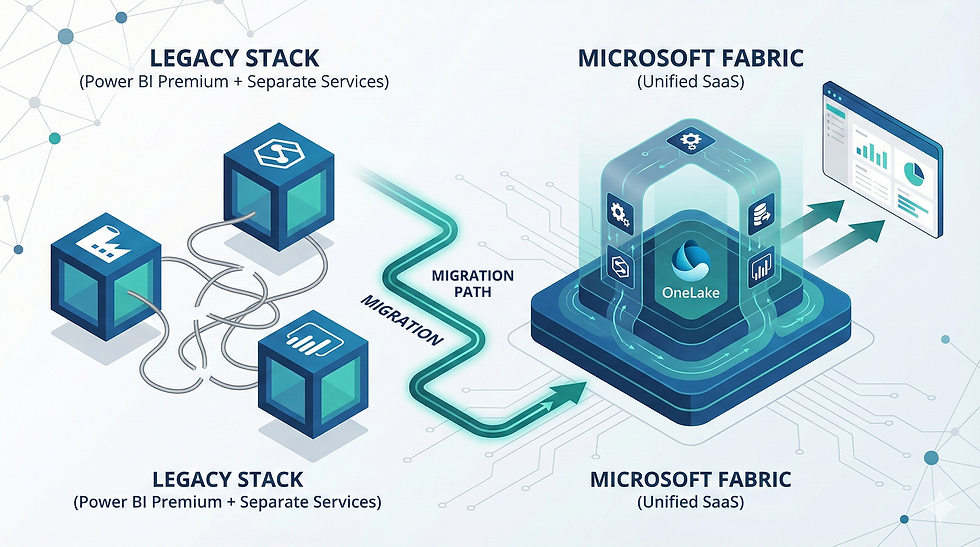Revolutionise Your Marketing with Big Data and E-Commerce Integration
- Matt Lazarus

- Sep 22, 2025
- 6 min read
Modern businesses face an unprecedented challenge: how to cut through the digital noise and connect meaningfully with customers. While traditional marketing methods relied on broad assumptions and gut instincts, today's most successful companies are leveraging something far more powerful—the strategic combination of big data and e-commerce platforms. This integration isn't just changing how businesses operate; it's completely transforming the marketing game.
The shift towards data-driven marketing has created new opportunities for businesses to understand their customers at a granular level, predict behaviours, and deliver precisely what consumers want, when they want it. Companies that master big data and e-commerce integration are seeing remarkable improvements in customer engagement, conversion rates, and overall marketing return on investment.
The Growing Importance of Data in Modern Marketing
Marketing has undergone a fundamental transformation over the past decade. Where businesses once cast wide nets hoping to catch the right customers, they now use sophisticated data analysis to identify, target, and engage specific audiences with laser-like precision. This shift has made big data and e-commerce integration essential for competitive advantage.
The explosion of digital touchpoints has created massive amounts of consumer data. Every click, purchase, search query, and interaction generates valuable insights that can inform marketing strategies. Innovative businesses recognise that this wealth of information, when properly harnessed through effective data e-commerce systems, becomes their most valuable marketing asset.
Modern consumers expect personalised experiences across all channels. They want relevant product recommendations, timely offers, and content that speaks directly to their needs and preferences. Meeting these expectations requires sophisticated data collection and analysis capabilities that only integrated big data and e-commerce systems can provide.
Understanding Big Data and Its Role in E-Commerce
What is Big Data in the Context of E-Commerce?
Big data in e-commerce refers to the vast volumes of structured and unstructured information generated through online retail activities. This includes customer transaction histories, browsing patterns, product interactions, social media engagement, and countless other data points that traditional retail environments could never capture.
The scope of e-commerce data collection extends far beyond simple purchase records. Modern platforms track user behaviour across multiple touchpoints, creating comprehensive customer profiles that include preferences, seasonal buying patterns, price sensitivity, and response to different marketing approaches. This comprehensive view enables businesses to make informed decisions based on actual customer behaviour rather than assumptions.
Key Characteristics of E-Commerce Data
E-commerce data possesses several unique characteristics that make it particularly valuable for marketing applications:
Volume and Variety
Transaction data from millions of purchases
Behavioural data from website interactions
Social media engagement metrics
Customer service interactions
Mobile app usage patterns
Real-Time Nature
Live inventory updates
Dynamic pricing information
Immediate customer feedback
Current browsing behaviour
Instant purchase decisions
Granular Customer Insights
Individual customer preferences
Purchasing frequency patterns
Product category interests
Geographic location data
Device and platform preferences
The Value of Integrating Big Data with E-Commerce

The true power emerges when businesses successfully integrate big data analytics with their e-commerce operations. This integration enables companies to move beyond reactive marketing strategies to proactive, predictive approaches that anticipate customer needs and market trends.
Integrated systems can identify emerging trends before they become apparent, enabling businesses to adjust inventory, marketing messages, and promotional strategies accordingly. The ability to process and analyse e-commerce data in real-time means that marketing campaigns can be optimised continuously, maximising their effectiveness and minimising wasted resources.
The Power of Big Data and E-Commerce Integration in Marketing
Personalised Customer Experiences
Modern customers expect marketing messages and product recommendations that reflect their individual preferences and purchase history. Big data and e-commerce integration make this level of personalisation possible by analysing customer behaviour patterns and predicting what products or services they're most likely to want next.
Personalisation extends beyond simple product recommendations. Integrated systems can customise email marketing campaigns, website content, promotional offers, and even the timing of marketing messages based on individual customer data. This targeted approach significantly improves engagement rates and conversion percentages.
The most successful personalisation strategies use machine learning algorithms to refine their understanding of customer preferences continuously. As more data becomes available through ongoing e-commerce data collection efforts, these systems become increasingly accurate in their predictions and recommendations.
Data-Driven Targeting and Segmentation
Traditional demographic segmentation has given way to sophisticated behavioural and psychographic targeting made possible through comprehensive data analysis. Businesses can now identify customer segments based on purchasing patterns, brand loyalty, price sensitivity, and countless other factors that directly relate to buying behaviour.
Advanced segmentation allows marketers to create highly targeted campaigns that speak directly to specific customer groups. Instead of generic messaging that attempts to appeal to everyone, businesses can craft personalised communications that resonate with particular segments, leading to higher engagement and conversion rates.
The dynamic nature of data-driven segmentation means that customer groups can be updated in real-time as new information becomes available. This flexibility allows marketing campaigns to remain relevant and practical even as customer preferences and market conditions change.

Real-Time Marketing and Dynamic Campaigns
The integration of big data with e-commerce platforms enables real-time marketing capabilities that can respond immediately to changing customer behaviours and market conditions. This agility is crucial in today's competitive environment, where customer attention spans are short and market opportunities can disappear quickly.
Real-time marketing systems can automatically adjust campaign parameters based on performance data, optimising ad spend and messaging for maximum impact. They can also respond to external events, seasonal trends, or competitive actions with immediate campaign modifications that keep marketing efforts relevant and practical.
Dynamic campaigns use live data feeds to personalise content, offers, and timing for individual customers. This approach ensures that marketing messages reach customers when they're most likely to be receptive, significantly improving campaign performance and customer satisfaction.
How E-Commerce Data Collection Enhances Marketing Strategies
Collecting Valuable Data from E-Commerce Platforms
Effective e-commerce data collection requires strategic planning and the right technological infrastructure. Businesses must identify which data points provide the most valuable insights for their specific marketing objectives and implement systems that can capture, store, and analyse this information efficiently.
Essential Data Collection Points:
Customer registration and profile information
Product browsing and search behaviour
Purchase history and transaction details
Cart abandonment patterns
Customer service interactions
Social media engagement
Email and marketing campaign responses
Advanced Data Sources:
Mobile app usage patterns
Location-based behaviour data
Cross-device tracking information
Third-party data integrations
IoT device interactions
The quality of data collection directly impacts the effectiveness of subsequent marketing efforts. Poor data quality leads to inaccurate insights and misguided marketing strategies, while high-quality, comprehensive data enables precise targeting and personalisation that drives superior results.
Integrating E-Commerce Data into Marketing Tools
The successful integration of data e-commerce systems with marketing platforms requires careful planning and execution. Businesses must ensure that data flows seamlessly between systems, maintaining accuracy and timeliness while respecting privacy regulations and customer preferences.
Integration Strategies:
API connections between e-commerce and marketing platforms
Real-time data synchronisation systems
Customer data platform implementation
Marketing automation tool integration
Analytics and reporting dashboard creation
Technical Considerations:
Data format standardisation
Security and privacy compliance
Scalability planning
Performance optimisation
Backup and recovery procedures
Modern marketing technology stacks rely heavily on integrated data systems to function effectively. Customer relationship management systems, email marketing platforms, advertising networks, and analytics tools all require access to current, accurate customer data to deliver optimal results.
The integration process should prioritise data accuracy, security, and accessibility. Marketing teams need to access relevant customer information quickly and easily, while technical teams must ensure that data integration doesn't compromise system performance or customer privacy.
Visualising E-Commerce Data for Marketing Success
The complexity of big data requires sophisticated visualisation tools to transform raw information into actionable marketing insights.
Power BI serves as a bridge between complex e-commerce data and marketing decision-making, offering intuitive dashboards that help marketing teams identify trends, track customer journeys, and measure campaign performance across multiple channels. Its ability to connect with over 100 data sources makes it particularly valuable for businesses operating diverse e-commerce and marketing technology stacks
Maximising Marketing Impact Through Data Integration
The combination of big data and e-commerce integration represents a fundamental shift in how businesses approach marketing. Companies that successfully implement these systems gain significant competitive advantages through improved customer understanding, more effective targeting, and enhanced campaign performance.
Data-driven decision-making eliminates much of the guesswork that traditionally plagued marketing efforts. Instead of relying on assumptions about customer preferences and behaviour, businesses can base their strategies on concrete evidence gathered through comprehensive e-commerce data collection and analysis.
The benefits extend beyond improved marketing performance to include enhanced customer satisfaction, increased brand loyalty, and stronger business growth. When customers receive relevant, personalised marketing messages and product recommendations, they're more likely to make purchases and develop long-term relationships with brands.
As technology continues advancing and customer expectations increase, the importance of big data and e-commerce integration will only grow. Businesses that invest in these capabilities now will be well-positioned to thrive in an increasingly competitive and data-driven marketplace.



